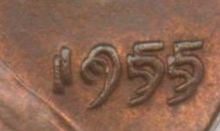- Close-up
-
For other uses, see Close up (disambiguation)Main article: Shot (filmmaking)
In filmmaking, television production, still photography and the comic strip medium a close-up tightly frames a person or an object. Close-ups are one of the standard shots used regularly with medium shots and long shots (cinematic techniques). Close-ups display the most detail, but they do not include the broader scene. Moving in to a close-up or away from a close-up is a common type of zooming.
Close-ups are used in many ways, for many reasons. Close-ups are often used as cutaways from a more distant shot to show detail, such as characters' emotions, or some intricate activity with their hands. Close cuts to characters' faces are used far more often in television than in movies; they are especially common in soap operas. For a director to deliberately avoid close-ups may create in the audience an emotional distance from the subject matter.
Close-ups are used for distinguishing main characters. Major characters are often given a close-up when they are introduced as a way of indicating their importance. Leading characters will have multiple close-ups. There is a long-standing stereotype of insecure actors desiring a close-up at every opportunity and counting the number of close-ups they received. An example of this stereotype occurs when the character Norma Desmond in Sunset Boulevard, announces "All right, Mr. DeMille, I'm ready for my close-up" as she is taken into police custody in the film's finale.
Close-up shots do not show the subject in the broad context of its surroundings. If overused, close-ups may leave viewers uncertain as to what they are seeing. Close-ups are rarely done with wide angle lenses, because perspective causes objects in the center of the picture to be unnaturally enlarged. Certain times, different directors will use wide angle lenses, because they can convey the message of confusion, and bring life to certain characters.
Contents
Types of close-up
 A filmmaker captures a Dutch angle close-up of an astronaut's head resting against a porthole. His face fills half the frame, seen in the on-board monitor.
A filmmaker captures a Dutch angle close-up of an astronaut's head resting against a porthole. His face fills half the frame, seen in the on-board monitor.
There are various degrees of close-up depending on how tight (zoomed in) the shot is. The terminology varies between countries and even different companies, but in general these are:
- Medium Close Up ("MCU" on camera scripts): Half-way between a mid shot and a close-up. Usually covers the subject's head and shoulders.
- Close Up ("CU"): A certain feature, such as someone's head, takes up the whole frame.
- Extreme Close Up ("ECU" or "XCU"): The shot is so tight that only a detail of the subject, such as someone's eyes, can be seen. [1]
- Lean-In: when the juxtaposition of shots in a sequence, usually in a scene of dialogue, starts with medium or long shots, for example, and ends with close-ups.
- Lean-Out: the opposite as a lean-in, moving from close-ups out to longer shots.
- Lean: when a lean-in is followed by a lean-out.
When the close-up is used in shooting, the subject should not be put in exactly the middle of the frame. Instead, it should be located in the frame according to the law of golden section.
The history of the close-up
 An early close-up, from D. W. Griffith's The Lonedale Operator (1911).
An early close-up, from D. W. Griffith's The Lonedale Operator (1911).
The earliest filmmakers — such as Thomas Edison, Auguste and Louis Lumière and Georges Méliès — tended not to use close-ups and preferred to frame their subjects in long shots. Film historians disagree as to which filmmaker first used a close-up, but D.W. Griffith used the shot extensively at an early date. For example, one of Griffith's short films, The Lonedale Operator (1911), makes significant use of a close-up of a wrench that a character pretends is a gun.
Close-ups may be more expensive than other shots due to the extra lighting and make-up needed.
References
- Bordwell, David; Thompson, Kristin (2006). Film Art: An Introduction. New York: McGraw-Hill. ISBN 0-07-331027-1.
See also
Categories:- Film techniques
- Television terminology
Wikimedia Foundation. 2010.


